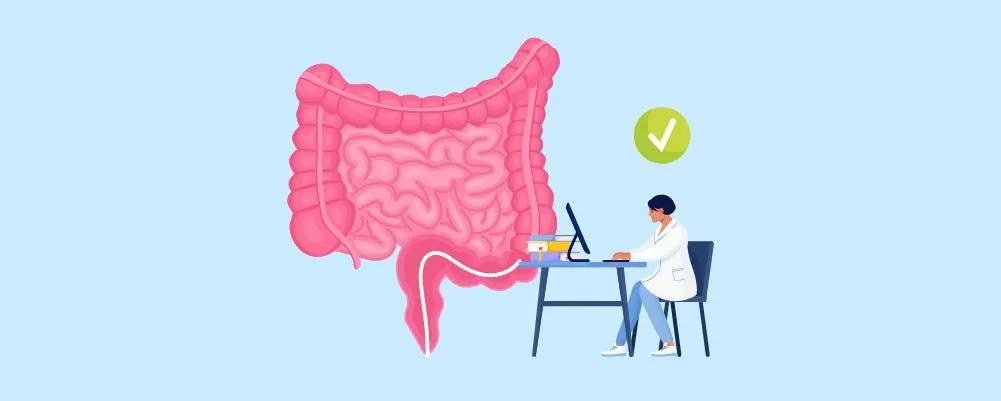The Complete Guide To Gut Health

Recently, there has been an increased interest in gut health, because more people are beginning to work towards the healthiest versions of themselves. This can actually have a huge impact on the body’s overall health and state of wellness. It is important that you eat foods that will help your digestive system function properly, as well as give it some needed support.

Your gut is one of the most essential parts of your body. This is because it can influence other organs and bodily functions such as the response to stress, inflammation, and energy levels. It is worth focusing on your digestive system and adding to the complex microbiome, even if you suffer from an ailment which is not related to the gut.
For those who are less familiar with fermented food, fibrous and collagen-rich foods, it is worth including more of these in a regular week. The rest of your body will thank you over time, and you will begin to appreciate the global role which the gut can play in your body’s regular functioning.
If you are unsure about where to start, and why you should take the time to focus on your gut health, this guide is for you. Consider this informational guide as a stepping stone towards understanding the role that your gut health plays on the rest of your body and your mind.
What Is Gut Health?

Firstly, gut health can be defined as how efficient the digestive system is working as a whole. This includes the intestines, stomach, and esophagus, and how well they are functioning individually as well as together.
Many people underestimate their gut, and the role it can play in maintaining regular bodily functions, as well as keeping other organs in check. These include the immune system, stress response in the body, and energy levels throughout a typical day.
The main thing about gut health is that it’s all about balance. Balancing out the essential nutrients and minerals in your diet, without getting too much, can be challenging. Because of this, it is worth reading into the types of foods to look out for and incorporating more into your diet consistently. These are great for your immune system, energy levels, and gut health.
The Gut Microbiome
The number of people who are unaware that their gut health needs improving is shocking, and it can restrict how the rest of the body is functioning. When someone’s gut health is damaged, there are limitations to the essential nutrients being carried throughout the body.
This means that other organs which do not play a role in gut health are likely to improve when someone takes their gut health more seriously. Within the past twenty years, an increasing amount of evidence1 has suggested that gut health influences other processes in the body. These include autoimmune diseases, skin conditions, cancer, mood, the immune system in general, mental health, and endocrine disorders.
There are thousands of bacteria found in the gut which play an essential role in breaking down food, getting rid of waste, and absorbing nutrients. The gut microbiome needs to have a large variety of bacteria in order to function correctly. People with fewer bacteria present in their intestines and stomach are likely to be unhealthy2 in general, with poorer gut health.
Why Is Gut Health Important?
When your gut is unhealthy, it can actually lead to many additional health conditions. There are thousands of essential bacteria3 which allow the body to function properly. Not only that, but healthy guts contain immune cells4.
These help the body to fight off harmful bacteria, fungi5 , and viruses. Without these cultures, the body would struggle to stay healthy on a regular basis. This can increase the risk of developing more severe conditions such as autoimmune diseases and cancers.
A healthy gut can impact your body’s energy levels on the whole, sleeping patterns, and even decrease the risk of developing allergies and intolerances. Regardless of the current ailments you may be suffering from, it is certainly worth taking a closer look into your gut health.
Signs Of A Healthy Gut

It’s important to recognize the signs of a healthy gut. This is because it can be a sign that you do not need to change your habits drastically, or at all, if you don’t want to. A healthy gut6 generally means that everything is functioning as it should be, and that your current routine is working well for you and your body. Consider the following factors when you are checking your gut health.
Frequent Bowel Movement

One of the most obvious indicators of a healthy gut is if your bowel movements are regular. This differs for everybody, but someone with a healthy gut should be passing around once or twice a day. It should not be uncomfortable, or difficult to pass. To put simply, a healthy gut works.
Bowel movements are a useful way of indicating issues with the body, from color variations to irregular patterns. If you are unsure about the current health of your digestive system and whether it is working correctly, it could be worth thinking about the patterns of your bowel movements.
No Abdominal Symptoms

Some of the most noticeable signs of abdominal problems caused by poor gut health are bloating, gas or frequent abdominal pain such as cramping. Being free from these on a regular basis is normally a sign that your gut is working correctly.
Signs Of An Unhealthy Gut

Because gut health can impact many other functions in the body which seem unrelated at first, it is important to be aware of the most common signs of an unhealthy gut. All of these are not necessarily problematic on their own or if they happen infrequently, but they can be signs that your digestive system needs some attention if they happen often.
Weight Fluctuations

Additionally, it could be time to focus on your gut health if you find your weight7 fluctuating frequently without making a conscious effort to do so. If you find yourself eating or craving more foods that have a high sugar content, then it could be a sign that something is wrong with your digestive system.
Abdominal Discomfort

Abdominal pain or discomfort, nausea, heartburn, vomiting, and fatigue can be signs of an unhealthy gut. Bloating or regularly suffering from an upset stomach. Hemorrhoids, constipation, and other rectal symptoms could be a reason to work on your gut health sooner rather than later in order to avoid more drastic health implications.
It is worth speaking to your doctor about any of these symptoms, even if you think that your gut microbiome is relatively healthy. Any form of abdominal discomfort8 can be a sign of something more serious. People who have trouble swallowing food could also benefit from focusing on their gut health, unless you have experienced dysphagia9 following a stroke.
Immune System

If you have a food allergy10 or intolerance, it could be an indication that your digestive system is not functioning correctly, or that there aren’t enough healthy bacteria where they should be in order to maintain healthy functioning. The body could be struggling to respond correctly due to a reduced number of bacteria in the gut.
Irritated skin and the development of conditions such as psoriasis, eczema, and jaundice can also be a sign that the body is struggling to absorb nutrients correctly. Focusing on your gut health can improve the health of other systems within the body. This includes the overall health of your skin11.
What Affects Your Gut Health?

Text here..Because it is regarded as the body’s second brain, the gut can influence an enormous range of bodily functions. This includes stress response, energy levels12, and sleeping patterns. The digestive system13 can be affected by a range of factors, which have been outlined below.
How You Were Born
While it may seem a little unusual, there is evidence14 to suggest that the way in which you were born and the stages of infancy can impact your gut health in later life. Compared to babies who are delivered via C-section, babies that are delivered vaginally have been proven to grow up with more diverse microbiomes.
This is believed to be a result of the higher exposure to different bacteria that these babies get as they are passing through the birth canal. Another factor which can contribute to gut health in later life is the role of breastfeeding. Babies who were breastfed15 consistently have been known to have more beneficial bacteria in their gut, when compared to infants who were given a formula-based diet.
Your Environment
It’s no secret that the amount of germs you are exposed to can influence the strength of your immune system and the body’s resistance to infections and diseases. The same principle applies to your gut.
It is more likely to contain stronger microbiomes when the body is more exposed to bacteria and germs, within reason. Some exposure is completely normal and healthy. In fact, babies who are brought up in completely sterile environments16 are more likely to develop allergies17 and are more likely to develop autoimmune18 conditions.
This is known as the hygiene hypothesis19 , and the body needs to build up some immunity from the environment, which is cannot necessarily do in some instances.
Stress Levels

Stress can also impact the immune system and the body’s health as a whole. Because of this, stress20 can actually limit the functioning of your gut. The gut-brain axis is one example of how the general functioning of the brain can impact the gut. This is a pathway which can relay signals to and from the brain and gut.
High levels of stress are likely to activate somebody’s fight or flight response. This means that the naturally occurring stress hormones in the body are heightened, which impacts how well each organ is functioning. Digestion is normally affected by stress because the body is preparing to either fight or flight a challenging stimulus.
How To Improve Gut Health

Text here..When it comes to focusing on your gut health and making a conscious effort to improve it, it can be challenging to know where to start. That is why some basic routine changes have been outlined below. Consider taking care of your digestive system in order for the rest of your body to benefit in the long run.
Get More Sleep

One of the best ways that the gut can repair itself is by getting more rest21 on a regular basis. Most people are guilty of losing several hours of sleep by going to bed too late or getting up early for work.
If you want to start taking your gut health more seriously, it could be worth prioritizing a healthy sleep so that the gut and other organs within the body can heal and get back to normal functioning. Setting a regular routine of going to bed and waking up at the same time each night is a useful way of repairing the body and your mind.
Lower Stress Levels
This is easier said than done, but it is worth trying to cut out certain stressors from your regular life. Because stress has such a global impact on the body, it is highly recommended that you are finding healthy coping mechanisms if you believe that your lifestyle is currently highly stressful.
This can improve your gut health by reducing inflammation over time and allowing the body to repair itself correctly.
Eat Slower
Another way that you can improve the health of your gut and digestive system is by eating slower. Overeating is something that a lot of us are guilty of, and it can cause the body to have difficulties digesting everything, especially if an excessive amount of calories is being consumed.
Try to be mindful of the food that you are eating, and focus on the taste, aroma, and textures. This can really allow you to avoid overeating because you will feel like you are only eating until you are full and satisfied. Eating slowly is also a great way to improve your gut health, because you can avoid indigestion and heartburn-like symptoms.
Not only that, but eating slower will encourage your digestive system to process food more gradually rather than all at once. This can be a great way of improving the health of your gut and getting the right nutrients from your food.
Stay Hydrated

Most of us could benefit from drinking more water on a regular basis. Water is essential for normal bodily functioning, and it can influence energy levels throughout the day. Consider setting goals for yourself to drink more water in order to hydrate your body.
A healthy body is a hydrated body. Getting enough water is essential for your gut health, and it can influence how well the digestive system is functioning on a regular basis. Figure out what works best for you by trying out some different methods.
You could try adding berries, cucumber, or lemon slices to your water, or purchasing a new reusable water bottle for yourself which encourages you to take regular sips during the day.
Staying on top of your hydration and daily water intake can also help your digestive system because it will make your bowel movements easier. People who are dehydrated are more likely to have difficulty passing. When someone is getting enough water, their stools will be softer.
Change Your Diet If Necessary
It is also important that you think about changing your diet if you believe that it is necessary. Fiber is a huge part of a healthy diet, which can impact the functioning of the gut, as well as other organs in the body. Many nutritionists recommend eating more fibrous foods regularly in order to improve gut health.
These include whole grains, beets, broccoli, raspberries, and guava are all great for integrating more fiber into your diet, and it could be worth snacking on some of these. Remember to make small changes gradually rather than suddenly changing your diet completely. This can make the body go into shock and potentially damage gut health in turn.
If you can, try to maintain a varied diet with plenty of fiber-rich foods that can help your gut improve. Because the overall health of your gut is likely to improve, it also means that your body is more likely to benefit on the whole. This is because of the better ability to absorb nutrients and minerals from food.
Check Yourself For Food Intolerances

Another thing you can do which is recommended by nutritionists is to check for food intolerances and allergies. You may not realize that you are allergic to something which is a big part of your diet. Some of the most popular allergen tests include Everlywell22. This is a standard finger-prick method which checks your response to 96 foods.
Other allergen tests include breath trackers23. These measure the amount of undigested food currently in your gut by looking at the hydrogen levels in your breath. It can be a useful tool when you are looking to improve your gut health, as this measure could be used as a baseline measure.
If you are unsure about this, it could be worth speaking with your doctor or a nutritionist to see what type of diet changes you can engage in, and how this will affect your gut health. Alternatively, you could try to follow a diet which has been made specifically to check for allergies and signs of certain food sensitivities.
Regularly consuming foods which your body is unable to digest properly can cause significant damage to your gut. It is less likely to absorb nutrients into the rest of the body correctly, and the number of bacteria can decrease.
Take care of your gut correctly by checking for certain intolerances. Tests24 can be purchased privately, or you can speak with your healthcare provider for more detail.
Common allergens that people struggle to digest include lactose, certain types of seafood, eggs, peanuts, gluten, histamine, and tree nuts. If you have found yourself suffering from discomfort, bloating, or unusual bowel movements after eating a particular food, it could be worth checking for certain allergies.
Foods That Can Help Improve Gut Health

It is normally best to find natural sources of essential nutrients and minerals which can help with your gut health. This is because your body will naturally take the necessary nutrients and use the remainder as a great source of energy.
Consider integrating the following foods into your diet if possible so that you can protect and improve your gut health over time. If you want to use supplements or food additives, then it could be worth speaking with a physician or a nutritionist beforehand.
This can allow you to understand some of the common risks that can occur within the gut when too much of a particular nutrient is introduced. These are some essential foods25 which have been known to improve gut health.
Fermented Foods

Because kefir, miso, kimchi, yogurt, tempeh, and sauerkraut have had the sugars broken down by bacteria and yeast, they are great foods that will help repair your gut. They contain high amounts of microorganisms which are essential for healthy digestion.
Consider introducing more fermented foods into your diet so that you can promote your gut health and encourage your body to repair itself over time. These types of foods which help manage the balance of gut bacteria by introducing more are known as probiotics.
Many people who are trying to focus on their gut health and get back to a healthy balance of bacteria will aim to eat at least one portion worth of fermented foods26 per day. It could be worth limiting yourself to half a portion a day for a week or so to allow your body to get used to the new bacteria if you are less familiar with fermented foods.
High-fiber Foods

Bananas, berries, oats, leeks, and asparagus are all excellent sources of fiber. This is also essential for healthy gut functioning because it feeds the bacteria within the gut, which prevents them from feeding off the lining.
By doing this, fiber helps protect the lining of the digestive system and keeps everything moving. Of course, fiber also makes bowel movements easier, too. It is worth introducing more natural sources of fiber into your diet to allow your gut to restore and protect the internal lining.
One thing worth being aware of beforehand is that there can be complications if you consume too much fiber. Because of this, you should try to gradually work your way towards a more fibrous diet27 if possible. It could also be worth contacting your doctor or primary healthcare provider for more information if you have additional questions.
Collagen-based Foods

Another important food which is worth focusing on and trying to integrate into your regular eating habits is collagen28. It is essential for joint health, maintaining healthy skin, and maintaining the microscopic villi found in the intestines.
This protein plays an essential role when it comes to regulating your gut health, among other processes in the body. Salmon and most other fish are excellent sources of collagen. Egg whites, bone broth, garlic, berries, and citrus fruits can all be incorporated into your diet if you want to get more collagen in order to build up your gut health over time.
5 Gastrointestinal Diseases To Be Aware Of

Regular functions can be made easier or limited by the health of the digestive system. Because the gut is a highly complex system, it can go wrong to a severe degree. These are some gastrointestinal diseases worth being aware of.
1. Bile Duct Cancer
Firstly, bile duct cancer is commonly noticed when symptoms include severe abdominal pain, and jaundice or yellowing of the skin underneath the eyes. This is one of the ways in which the digestive system can impact the rest of the body.
Within the digestive system, the bile duct is a series of small tubes connecting the upper part of the small intestine to the liver by passing through the pancreas. Bile enters the small intestine in order to digest food correctly. It is essential for breaking down the fats in food. When this is affected by cancer, someone’s gut health and general health are likely to deteriorate.
The tiny connections between the liver and the small intestine are the most common site for bile duct cancer, and it can impact the digestion. Not only that, but the way in which the body absorbs essential minerals and nutrients from food will be affected by this.
There are currently a selection of clinical trials taking place in an attempt to better understand bile duct cancer. However, it has been known that people who have suffered with colitis have a higher risk of developing bile duct cancer in the future.
2. Cholangiocarcinoma
The tubes that carry bile towards the digestive tract are impacted by cholangiocarcinoma, which is a form of bile duct cancer by definition. Cholangiocarcinoma clinical trials are currently taking place in an attempt to learn more about this complex condition, but it can cause a great deal of discomfort in general.
This form of bile cancer is more prevalent in people aged over 50, but it can happen to anyone. Some of the most common symptoms that something is wrong include white colored stools, extremely itchy skin, abdominal pain specifically on the right side below the ribs, and night sweats.
3. Gastric Cancer

One of the most common symptoms of gastric cancer is severe indigestion and stomach discomfort or pain. Cancer cells form in the lining of the stomach, which can form a lump just above the navel in some cases.
Because it isn’t usually diagnosed or noticed until it is in its advanced stages, gastric cancer can be more challenging to treat. However, there are clinical trials which are currently taking place in order to determine the most appropriate approach to this condition.
4. Neuroblastoma

Another gastrointestinal disease to be aware of is neuroblastoma. This is more prevalent in children under the age of five years old, but it can happen in later life. It is a type of cancer that affects nerve cells in different areas of the body, but it is commonly experienced in the abdomen area.
Symptoms of the most common forms of neuroblastoma include changes in bowel habits, abdominal pain, and a mass under the skin. While some children naturally grow out of this as their bodies develop, some cases require focused treatment. In order to allow normal growth patterns and development, there are a huge selection of clinical trials taking place.
5. Colon Cancer
Colon cancer occurs in the large intestine, and usually begins in the form of small, harmless clumps of cells known as polyps. These are normally carefully scanned for by doctors and removed before they have the chance to form cancer cells.
Some of the most prominent symptoms for colon cancer include irregular bowel patterns, rectal bleeding, abdominal discomfort, and unexplained weight loss. Colon cancer is normally treated or made manageable through the use of chemotherapy, immunotherapy, and other targeted treatment methods.
There have been a great deal of clinical trials in order to find the potential risk factors, early symptoms, and the most effective treatment methods. While it is more common in older adults, colon cancer can happen at any age. It is worth being aware of the symptoms for this reason.
6. The Role Of Gastric Bypass

Individuals who have had gastric bypass surgery are more likely to experience indigestion, flatulence, and diarrhea. Although it is widely considered to be an effective weight loss treatment, it can have a negative impact on someone’s gut health. This can become very uncomfortable over time, and it is worth being aware of when taking care of yourself and your gut.
Not only that, but people who have received a gastric bypass also have a higher chance of developing intolerances to foods after the surgery. This can impact how well the gut functions and the digestive system as a whole. In turn, this can have significant long-term effects on the immune system, mental health, and stress management.
In contrast, there is evidence to suggest that gastric bypass is an effective treatment method for type 2 diabetes . When it comes to correcting particular systems in the body, gastric bypass can encourage healthy insulin levels. However, it is worth being aware of the impact that this treatment can have on gut health overall.
Summary

There are a surprising number of ways that gut health can impact somebody’s health in general. This includes their mental wellbeing, quality of life, the strength of their immune system, and likelihood of developing gastrointestinal diseases.
Because of the huge role that the gut can play in someone’s life, it is critical that you are taking care of your gut as much as possible. Consider being more mindful about what you eat on a regular basis, and how your current sleeping habits are impacting the body’s natural functions.
It is also important to incorporate more collagen-rich foods, fibrous, and fermented foods into your diet in order to protect the digestive system and allow it to function properly. If you have any concerns or additional questions about supplementing or drastically changing your diet, it is important to contact your healthcare provider for their advice.
References
1. MDPI, Impacts of Gut Bacteria on Human Health and Diseases
2. National Library of Medicine, The role of gut microbiota in immune homeostasis and autoimmunity
3. National Library of Medicine, Introduction to the human gut microbiota
4. John Hopkins Medicine, The Gut: Where Bacteria and Immune System Meet
5. UC Davis Health, What is ‘gut health’ and why is it important?
7. Carolina digestive Health Associates, The Signs and Symptoms of an Unhealthy Gut
8. Sidney Gut Clinic, What Persistent Abdominal Pain Could Mean
10. Current Opinion in Pediatrics, The role of the gut microbiota in food allergy
14. Nature, C-section babies are missing key microbes
16. The Moore Institute School of Medicine, Breastfeeding and the Microbiome
18. Vox, The hygiene hypothesis: How being too clean might be making us sick
19. Grow by WebMD, Is Dirt Good for Kids?
20. Harvard Health Publishing, The gut-brain connection
21. Henry Ford Health, How Lack Of Sleep Can Affect Gut Health
23. FoodMarble, Digestive science, pocket-sized
24. US Food Intolerance, Food & Non-Food Sensitivity Tests
25. EatingWell, Best and Worst Foods to Eat for Gut Health
26. Harvard Health Publishing, Fermented foods for better gut health
27. EatingWell, 12 Fiber-Rich Foods to Help with Good Gut Bacteria
28. Gundersen Health System, what is the benefit of collagen in your diet?